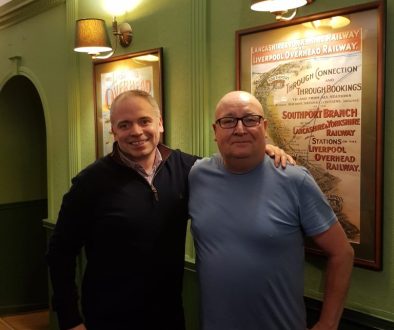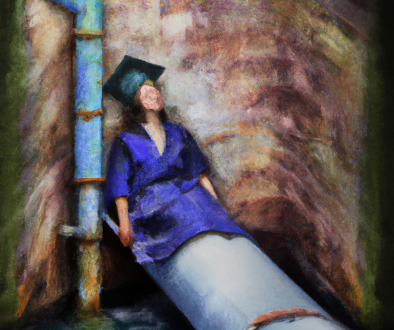No Man’s Land by Fraser Mycroft
I sat down to start this blog post and it felt like I was drowning in an ocean of my own thoughts, my anger and my expectations and disappointments. Maybe I could scream my frustrations at the laptop and it would formulate itself into something semi-comprehensive? Then it hit me, that’s what brought me to this space, my frustrations and wanting to be heard and understood. I seem to find myself in this liminal space, this ‘No Man’s Land’ between my working-class identity and roots and the middle-class circles of academia that I have found myself moving in since moving away to University. That feeling of isolation can be all-encompassing, feeling that there is so much you want to be able to unpack and discuss but not being able to share it. And I guess the big question for me is, how can we as working-class academics create an open and equal dialogue that bridges this class-divide? And what do we do to break out of this ‘No Man’s Land’ we oftentimes find ourselves trapped in?
I must admit I had my own feeling of imposter syndrome getting involved with this conference as I haven’t necessarily thought of myself as an academic much recently, or maybe worried I would not be valued as one? As if I was some kind of fraud?
I graduated from my undergrad degree at the Uni of Edinburgh last summer and have been working very happily since in a restaurant. But I need to remember that I am an academic. I achieved everything that was expected of a bright working-class lad from the former coalfields and then I just couldn’t keep going past graduation, I was completely burnt out. But that doesn’t make me less of an academic, if anything it surely aligns me more with working-class academics because we all know that when we’re in education we start at least two steps behind everyone else so we have to work and graft so much harder to end up in the same places. The expectations that I see and feel being put on working-class kids of my generation to ‘better themselves’, something that is regurgitated and pushed from both sides of the class divide (I appreciate for very different reasons) is exhausting. And when you’re exhausted from proving yourself to others who just don’t seem to be able to really see the hurdles you’ve had to jump over it makes that ‘No Man’s Land’ seem to stretch endlessly in the distance for eons, you’re left feeling trapped and alone.
Now, I’m a Social Anthropology graduate and for those of you who don’t know it’s a discipline not without its fair share of critiques. It’s born out of colonial expansion and exploration where white, middle-class and privately educated men could use their privilege to study the ‘other’, the ‘exotic’ and the ‘different’, categorising and mapping as they went. I do, however, love my field of study. Since its original inception it now constantly tries to evolve and grow as it re-brands itself into something more equal with social purpose, not that it always gets it right. I say all this because I found myself in these amazing spaces when I first started my degree discussing and breaking down these ‘Westernised’ notions of race, sexuality, gender and everything else under the sun, but you know in four years of this degree programme I can think of only one time we studied a book on class. That book was Paul Willis’s ‘Learning to Labour’ written in 1975, a great book, but is that really the best that one of the leading anthropology departments in the U.K could offer on the discussion of class? A book written 42 years prior? It might sting even more when I tell you it was for a zero-credit fundamentals course to teach us writing skills. University is hailed as this amazing time to explore and unpack your identities, to learn who you really are and yet in classes where we spent most of our time breaking down the barriers and expectations of all these different identity markers my working-classness was not welcome, not understood.
So why was this the case? Education has always been used as a barrier to keep people in their place and our education systems have not been equipped to discuss class because working-class academics are kept from entering those spaces. When we do push ourselves into these environments that’s when we find ourselves on this one-way path to ‘No Man’s Land’, never enough to become like *them* but too changed to return to what we were.
A few years ago I was introduced to ‘Know Your Place’ an incredible collection of essays edited by Nathan Connolly with a tag line that hit me so hard in the chest I felt winded; ‘Essays on the Working Class by the Working Class’. When I hold the book it feels heavy and powerful in my hand because I’d never really seen anything like it, this wasn’t the middle-class world of academia writing about an ‘other’, these were working-class academics writing about themselves and creating a collective. The establishment is bagging on the fact that those of us trapped in this liminal space won’t mobilise, that we won’t band together and tear the whole system down. But they are mistaken, working-class academics have sacrificed so much to be able to grab hold of the tools we needed and that is why I am so excited for this conference and all that is coming out of it. Because we are mobilising and class discussions are at the top of the agenda.

